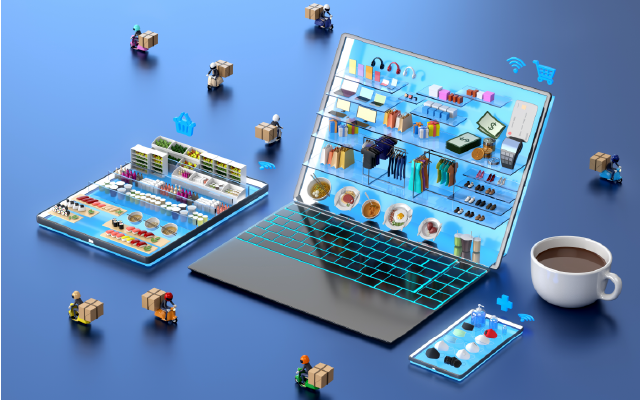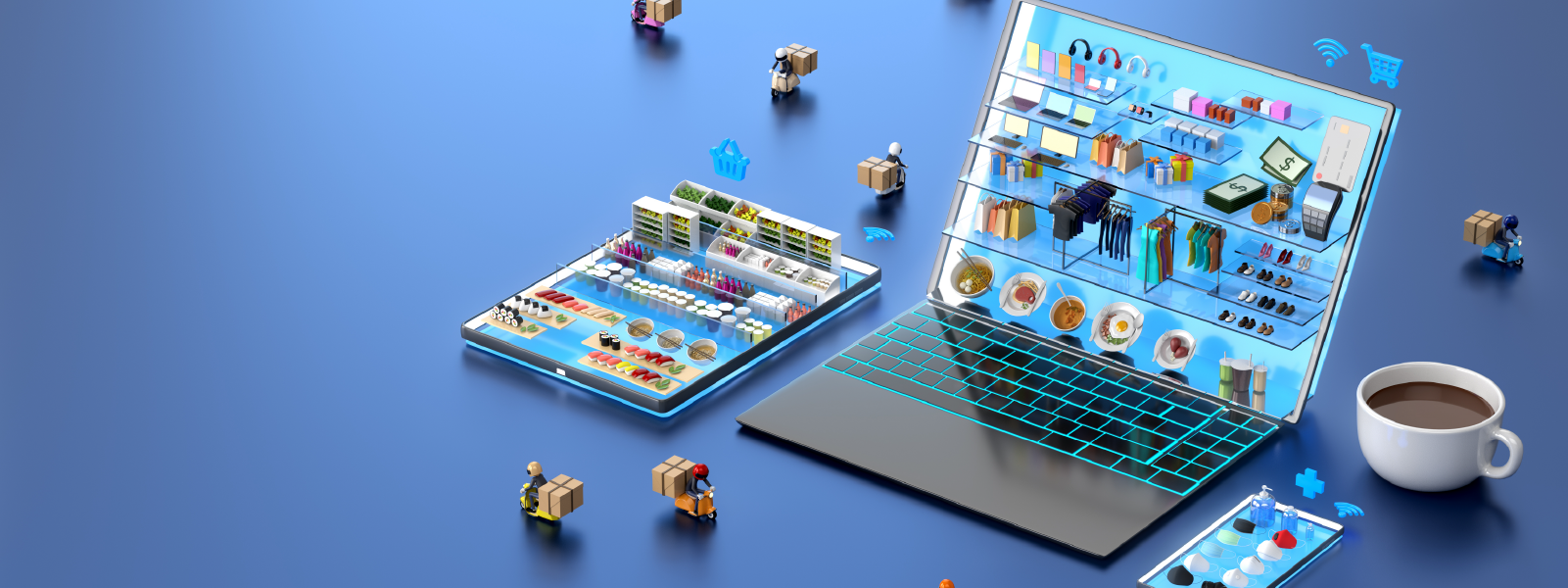With Payflex hitting over 400 merchants, that might mean our Online Store Directory is bigger than Sandton City or Eastgate Mall. But are shoppers able to get the same buzz they receive from in-store shopping in an online mall? The answer is a resounding yes.
Thanks to immersive technology like augmented reality (AR), 360° video, 3D content, and virtual reality (VR), retailers are increasingly able to blur the lines between offline and online retail, recreating the rich and sensory in-store experience in online malls.
In brick and mortar stores, consumers are able to try, touch, and fully experience products before purchasing them. This is something eCommerce has until now, failed to replicate. In the post COVID-19 retail landscape, retailers have however come under increasing pressure to bridge the divide between online and offline and come up with innovative ways to provide customers with a high level of service while of course being at home, or in the office.
Now, online malls and stores are offering engaging, interactive, and personalised customer experiences. Customers are now able to browse, ‘try on’, and view a product from a 360-degree angle.
A recent report by Accenture found these technologies represent the next frontier in eCommerce, providing shoppers with greater purchasing certainty, personalization, and control over the digital shopping experience. In fact, the same report found 64% of retailers are starting to invest in immersive experiences for commerce today.
Four of the key immersive technologies opening the door to the next wave of eCommerce include:
3D visualisation technology
3D visualisation technology enables a customer to interact with a three-dimensional digital version of a product. Without walking into a store, customers can now get an accurate portrayal of fit and size. The ability to zoom in and examine products from every angle is especially useful, as it can highlight a product’s finer details like buckles, zips, and fabric texture.
Augmented Reality
Augmented reality can provide significant value for consumers visiting online malls, enabling them to virtually ‘try on’ or test out clothing, furniture, and beauty without physically touching the products. Once a nice-to-have feature, AR has fast emerged as an essential technology for retailers in the post-COVID-19 environment. With hygiene and safety a top priority for retailers, they are increasingly turning to AR to help customers digitally try on or test products to assist in buying decisions.
Digital Assistants
Once a novelty, digital assistants are adding a personal element to the online buyer’s journey. From Amazon’s Alexa to Apple’s Siri and Google Now, digital assistants have become powerful customer service tools, enabling retailers to effectively solve customer concerns and issues without human intervention. Shoppers want help, advice, and guidance throughout the decision-making process. The touchless, voice-driven shopping experience offered by digital assistants enables immersive and interactive experiences that brands can then tailor to the consumer’s individual tastes and preferences.
Seamless Payments
If immersive technology is going to successfully replicate physical experiences, the integration of flexible and alternative payments into the process is going to be essential. Smart technology is making payment experiences even simpler by allowing consumers to bypass the traditional payment experience altogether via alternative and flexible payment methods.
A final word on the online mall
As we adjust to life in the post-COVID-19 landscape, one thing is clear: Experience is everything in the world of retail. Online retailers have an enormous opportunity to leverage the distinct benefits of old-fashioned, in-person shopping into the digital experience. At Payflex, our online mall aims to recreate the in-store experience with a digital twist by enabling customers to browse through different stores and categories from any device, at any time, from anywhere. By investing in some of these unique and innovative digital technologies, retailers will set themselves apart by making their online experiences memorable, customised, and engaging.































































